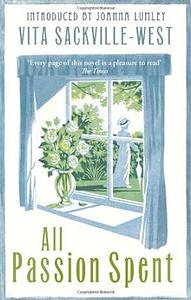Take a photo of a barcode or cover
'A room of one's own' novelado. Qué maravilla de libro, qué forma más fabulosa de escribir la vejez y qué humor al hablar del paternalismo hacia los ancianos. Me ha gustado muchísimo.
emotional
inspiring
reflective
slow-paced
Plot or Character Driven:
Character
Strong character development:
Yes
Loveable characters:
Complicated
Diverse cast of characters:
No
I have considered the eyes of the world for so long that I think it is time I had a little holiday from them.
So decides Lady Slane after her husband’s death. At eighty-eight, she chooses to step away from the busy life of Kensington and her greedy children, retreating to a rented house in Hampstead. There, she lives with her maid Genoux and becomes acquainted with eccentric characters like Mr. Bucktrout and Mr. Gosheron. She also reconnects with Mr. FitzGeorge, a man she met long ago in India. Eventually, she meets her great-granddaughter Deborah, whose life echoes that of Lady Slane. Through these encounters, the old protagonist feels more alive and attuned than ever.
The flittering of the butterflies had always remained more important.
The cycle of the seasons echoes Lady Slane’s contemplations. Though her memory fades, the recollections of her youth remain vivid — a time when every path seemed possible. She had once dreamed of becoming a painter but was pushed into marrying a man she did not love, his words emptying any desire she might have had for him. Indeed, she favored contemplation over action, standing in quiet opposition to her husband’s values.
The novel ends quietly, although with emotional force.
I was given this book years ago, and I regret not reading it sooner. I struggled a little with Sackville-West's style in the opening pages, but it was worth persisting. All Passion Spent is an ode to contemplation, and it is such a touching addition to my bookshelf.
emotional
inspiring
reflective
medium-paced
Plot or Character Driven:
Character
Strong character development:
Yes
Loveable characters:
Complicated
Diverse cast of characters:
No
Flaws of characters a main focus:
Yes
“Youth had no beauty like the beauty of an old face; the face of youth was an unwritten page. Youth could never sit as still as that, in absolute repose, as though all haste, all movement, were over and done with, and nothing left but waiting and acquiescence.”
I was thrilled when I randomly selected All Passion Spent by Vita Sackville-West from my bowl of TBR titles! Sackville-West has often figured into my reading over the years, but I've never actually read any of her writing. Upon the death of Lord Slane, it is assumed that his eighty-eight-year-old widow will fade into her grief and live to honor her husband's memory as befitting her station. Lady Slane, however, finds herself released by widowhood and enjoys the newfound freedom in making decisions for herself. To the dismay of her children, she abandons the family home and takes up in a small house in Hampstead, where she recollects the dreams of her youth and collects unsuitable companions.
The opening pages of Part 1 were superbly done. Lady Slane’s children are gathered, all puzzling around about what to do with her following the death of their father. This went on long enough that I actually grew quite desperate for the woman in question to make an appearance and also effectively drove home a point the novel set out to make. It felt like a wealthy woman’s Miss Pettigrew Lives For a Day or Mrs. Harris Goes to Paris.
This was a mostly enjoyable read. It has a certain charm that I found irresistible and I cannot deny the fineness of the writing, just don’t stare too long at the cracks. The strength of the novel really lies in Sackville-West’s treatment of the elderly, a recognition that age does not and should not sacrifice individuality or squash dreams and desires. What the novels fails to do, however, is interrogate what enables Lady Slane’s ability to retire to a nice little house and so wonderfully realize her dreams—that pesky little thing called money.
There’s this notion that independence and fulfillment come when one is the architect of one’s own life, but not everyone has a Gennoux ready and eager to serve, nor a Mr. Bucktrout and Mr. Gosheron willing conform to their plans. Lady Slane’s children consider class for all the wrong reasons, but it never occurs to her to give the issue any thought for the right reasons. She acknowledges that leaving the money and collection to the state will benefit for the poor, but this is once again tinged by a need to spite her children (not that the rotten creatures don’t deserve it.) Also, it took Lady Slane getting to the age of eighty-eight to realize that Gennoux had her own history, her own humanity? Come on, old girl. This one little section particularly bothered me:
“Deep down in her peasant wisdom, she recognized the wholesome instinct for perpetuation in posterity. Her own womanhood unfulfilled, she clung pathetically to a vicarious satisfaction through the medium of her adored Lady Slane.”
Vita! Peasant wisdom? Clung pathetically? Her own womanhood unfulfilled?
Lady Slane should have left that money to Gennoux, who is apparently the one of the few people who gave her any consideration during her life, not that it was returned. She does somewhat recognize this but….
“ Genoux had never had any personal fife, she supposed. Her life was in her service, with self submerged. Lady Slane suddenly condemned herself as an egoistic old woman. Yet, she reflected, she also had given her life away, to Henry. She need not blame herself overmuch for the last indulgence of her melancholy.”
The ability to recognize and then so easily dismiss this without any further qualms really annoyed me. These situations aren’t comparable, Lady Slane was provided with a rather luxurious life. Gennoux was provided with a life of servitude.
slow-paced
funny
fast-paced
Plot or Character Driven:
Character
Strong character development:
No
Loveable characters:
Yes
Diverse cast of characters:
No
Flaws of characters a main focus:
No
emotional
funny
inspiring
lighthearted
reflective
medium-paced
Plot or Character Driven:
Character
Strong character development:
Yes
Loveable characters:
Complicated
Diverse cast of characters:
No
Flaws of characters a main focus:
Yes
hopeful
inspiring
reflective
slow-paced
Plot or Character Driven:
Character
Strong character development:
Yes
Loveable characters:
Yes
Diverse cast of characters:
Yes
Flaws of characters a main focus:
Yes
One of the very best books. Thinking about death isn’t really thinking about death, but appreciating life. I had the feeling that following the death of her husband Lady Slane was able to pause and appreciate every moment in a way she had not.
Vita Sackville-West explains the machinations and reflections of the mature mind like no book I’ve ever read.
Vita Sackville-West explains the machinations and reflections of the mature mind like no book I’ve ever read.
reflective
slow-paced
Plot or Character Driven:
Character
Strong character development:
Yes
Loveable characters:
Yes
Diverse cast of characters:
No
Flaws of characters a main focus:
Yes
funny
reflective
sad
medium-paced
medium-paced
Plot or Character Driven:
Character
Loveable characters:
Complicated






